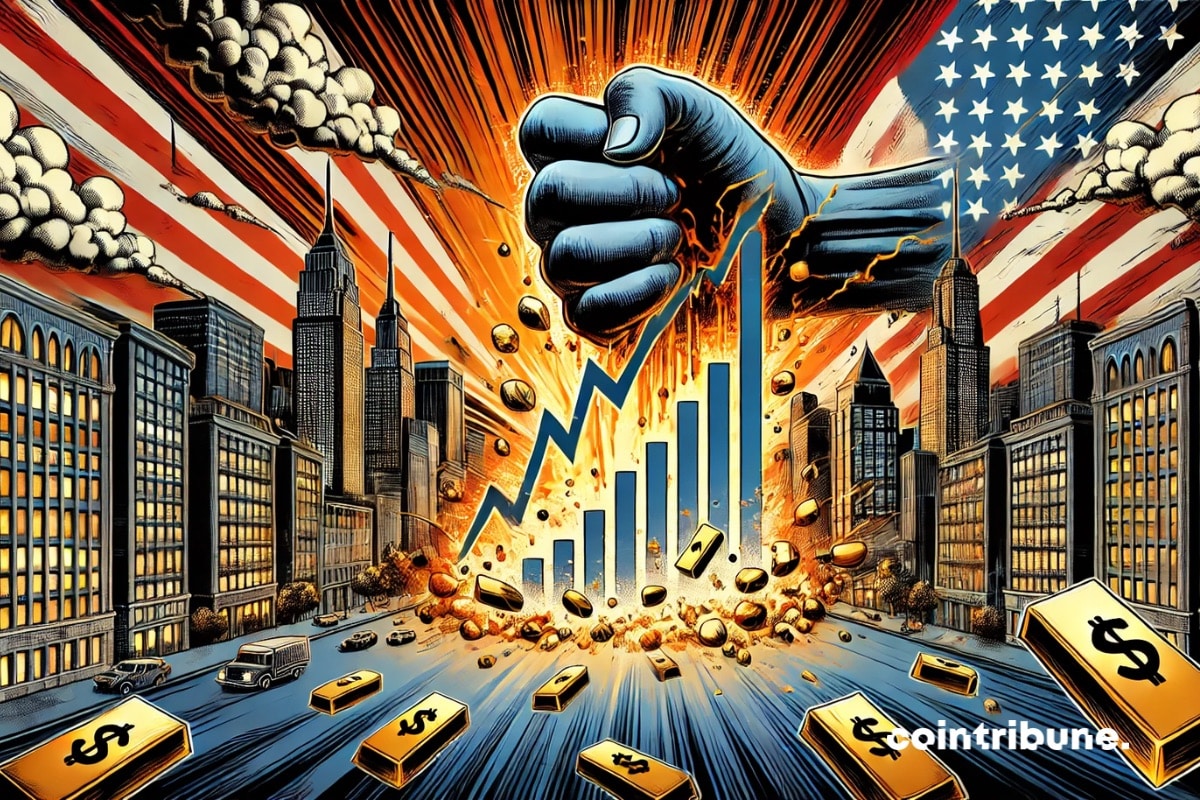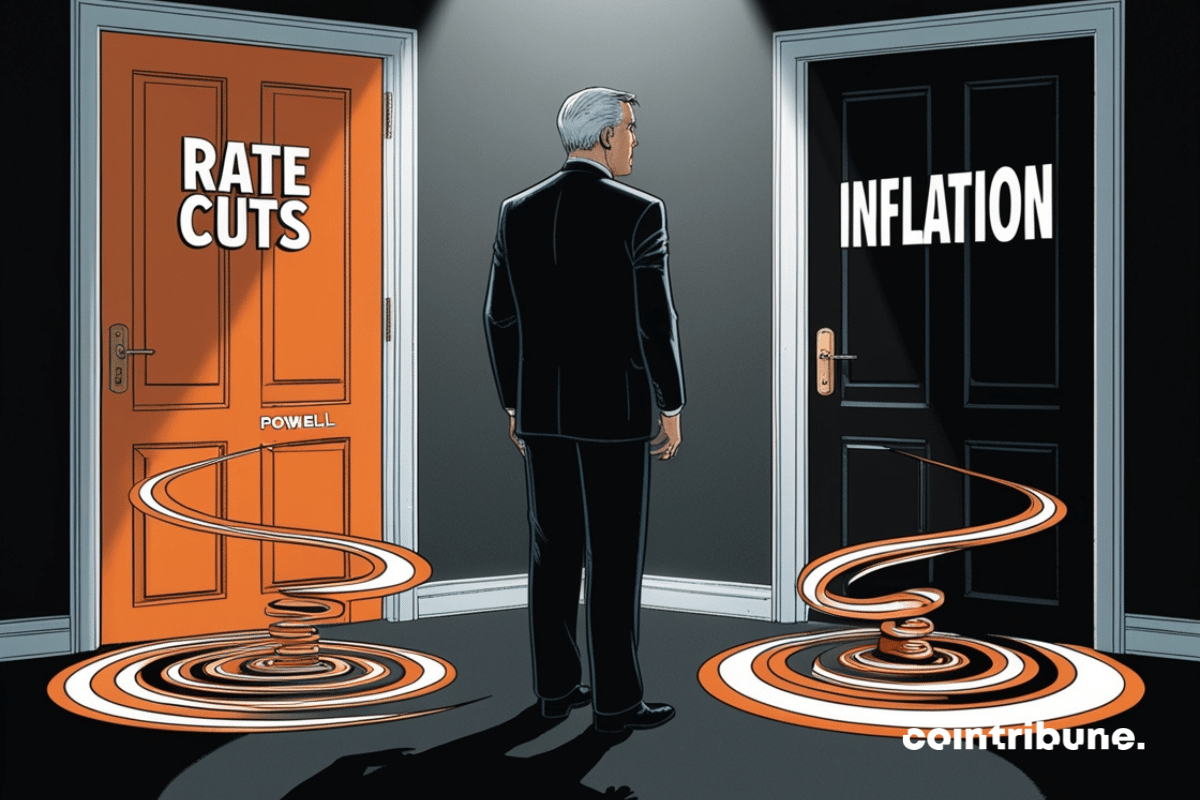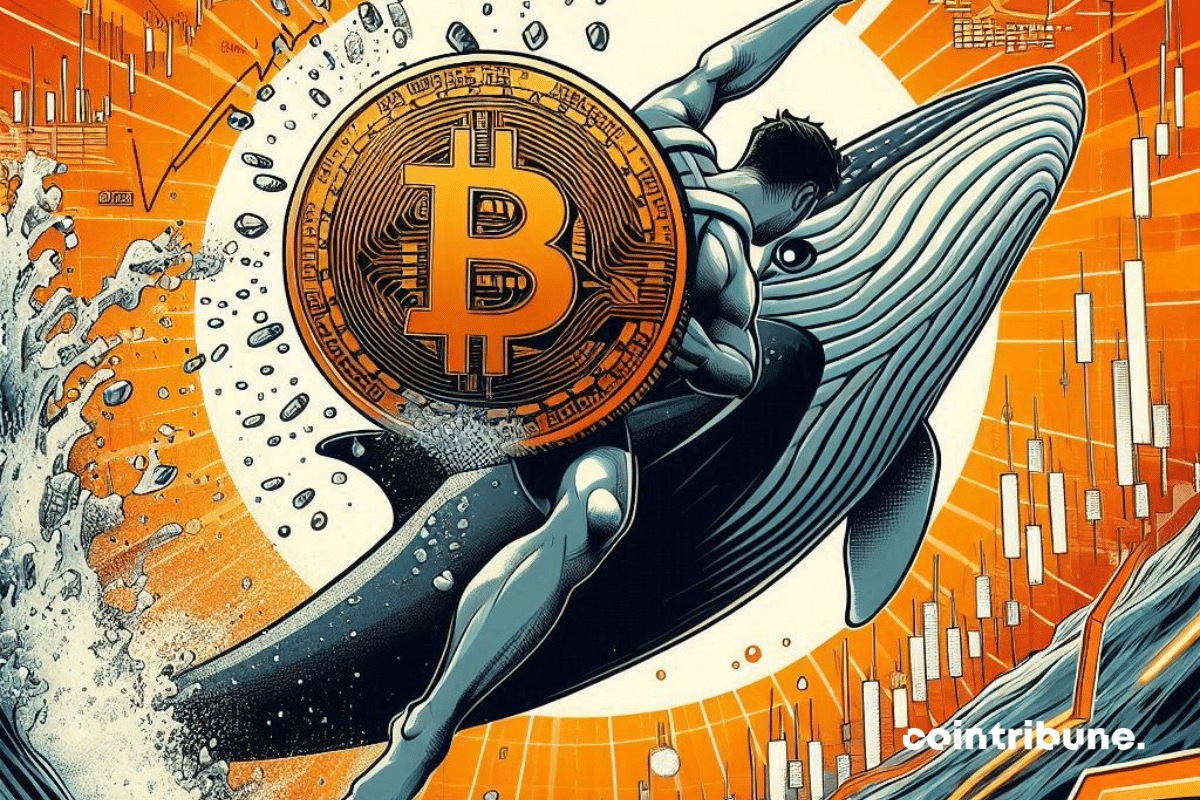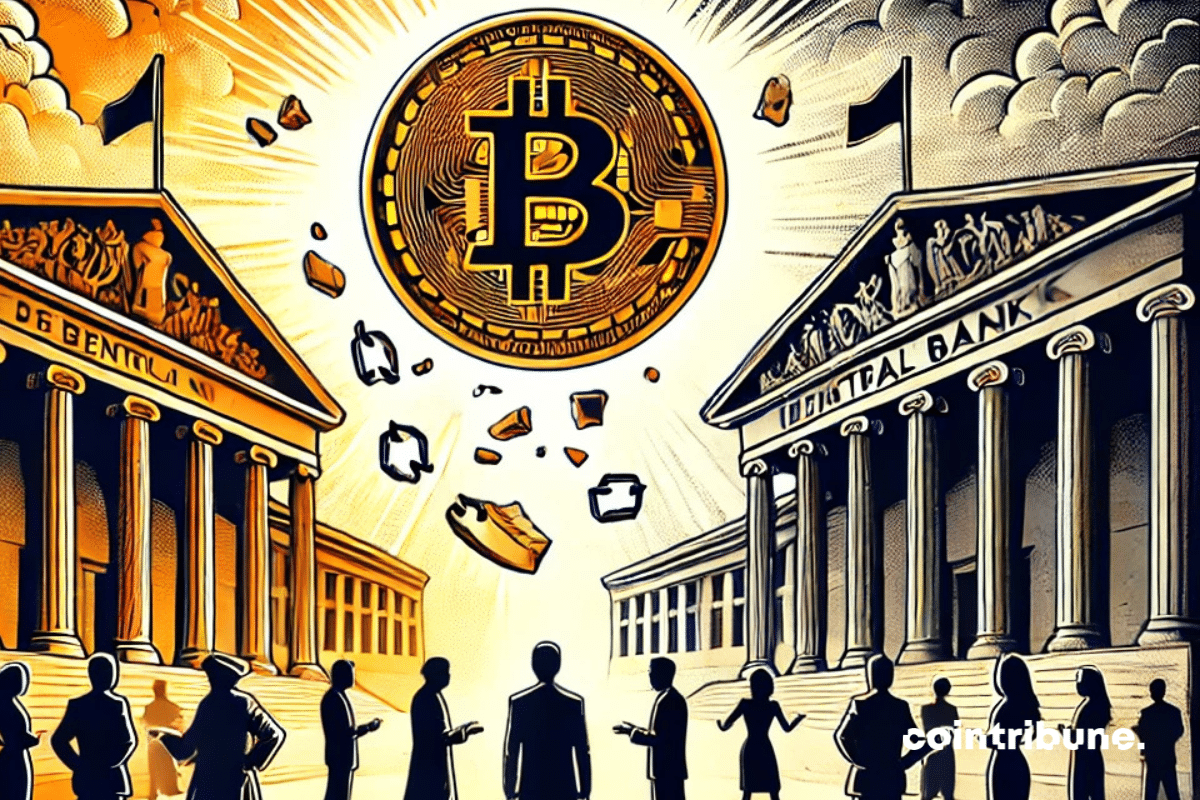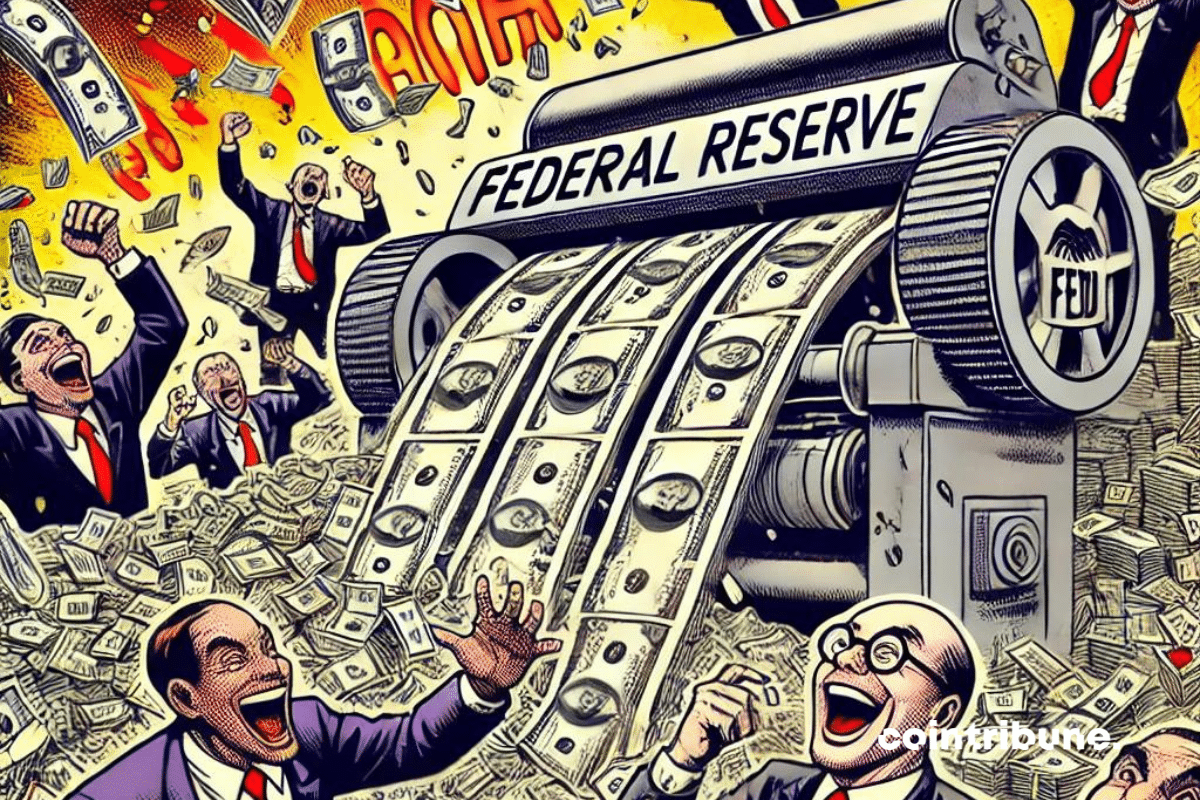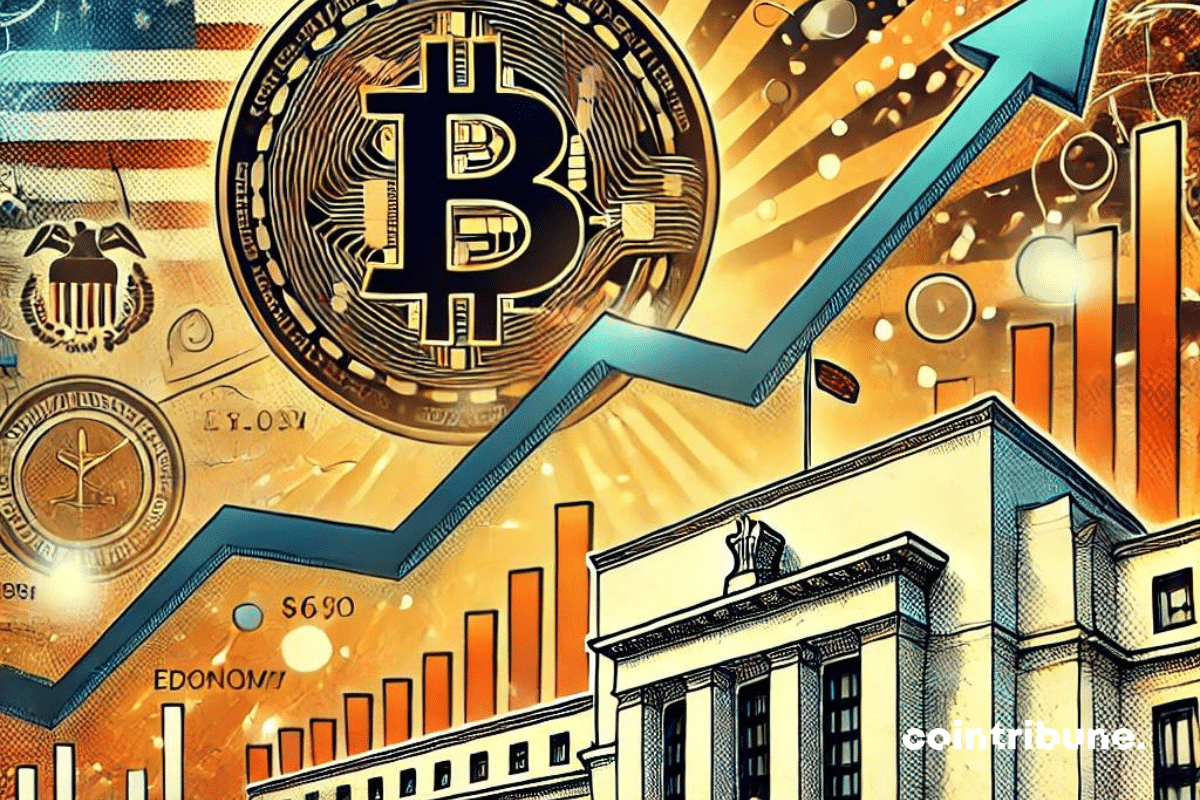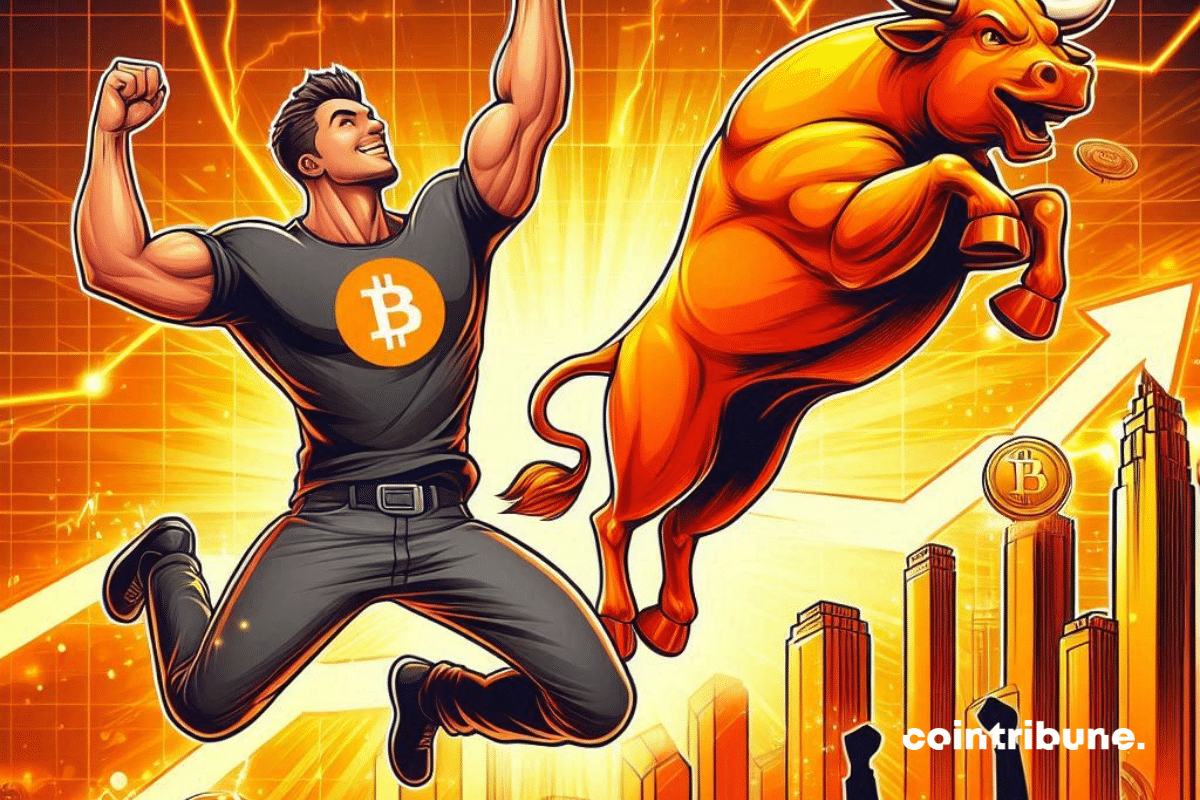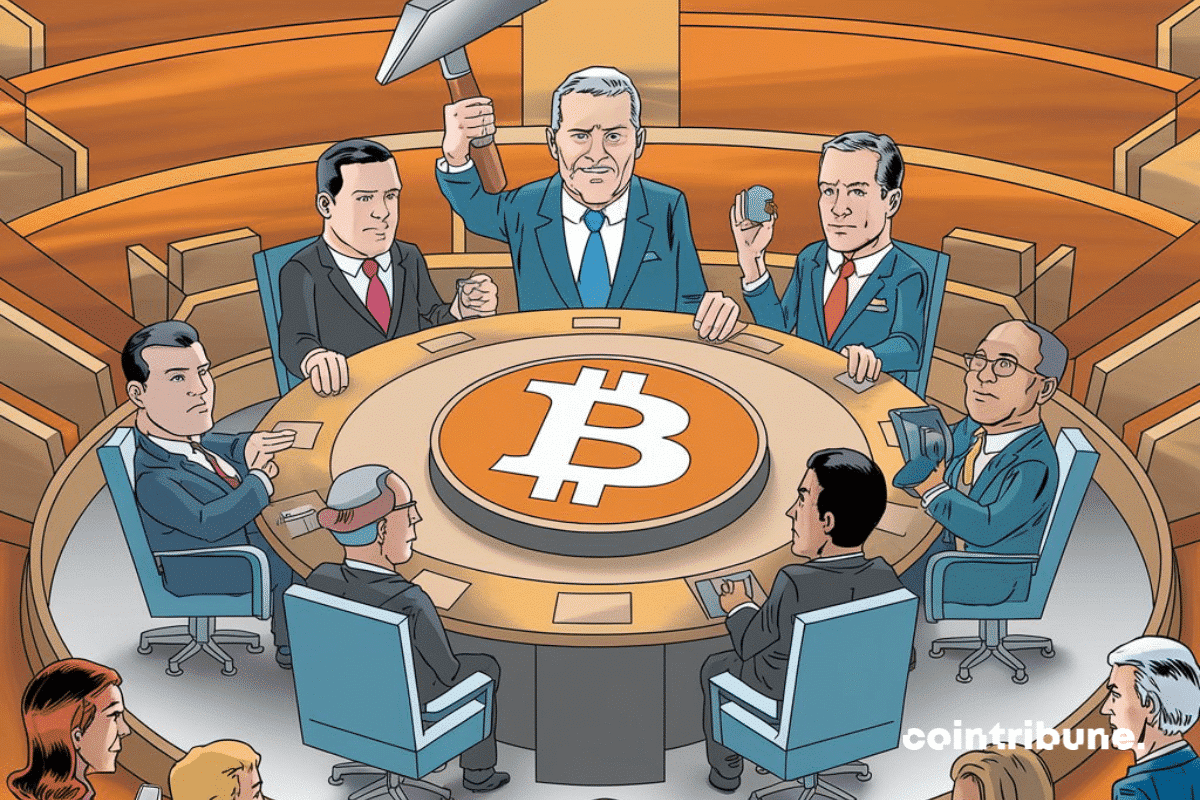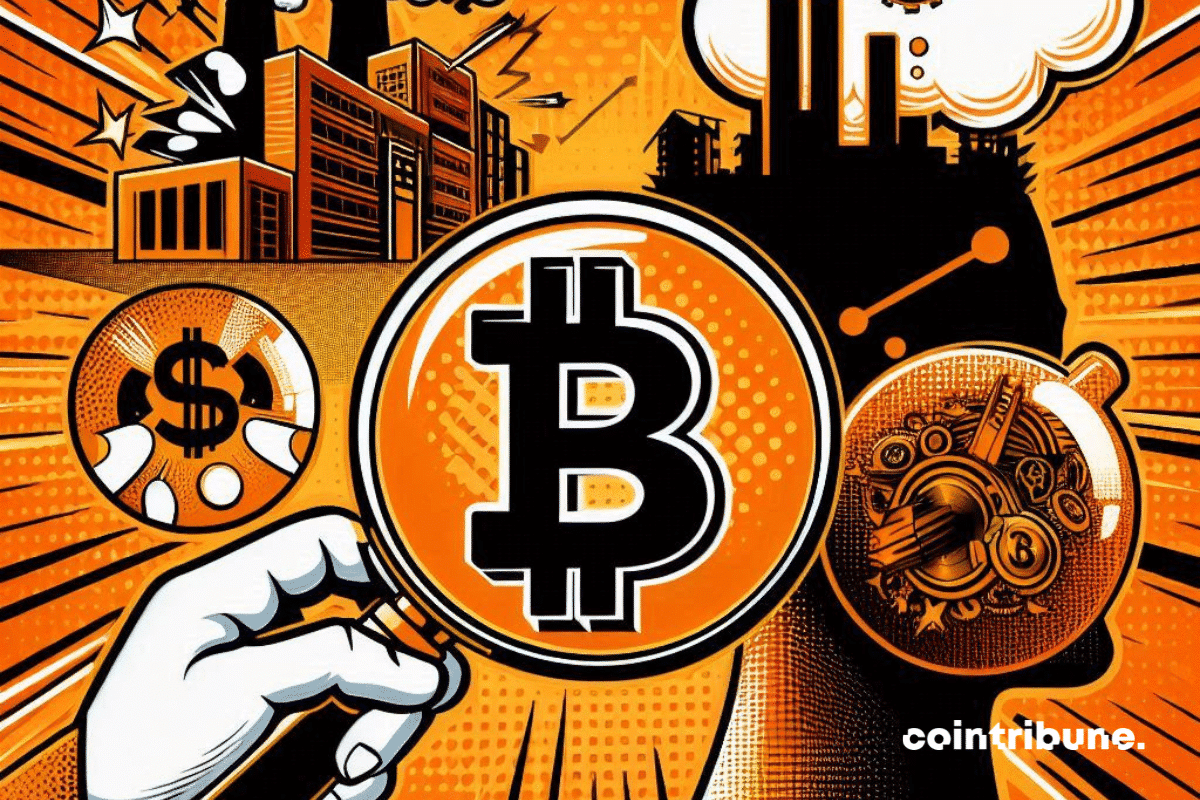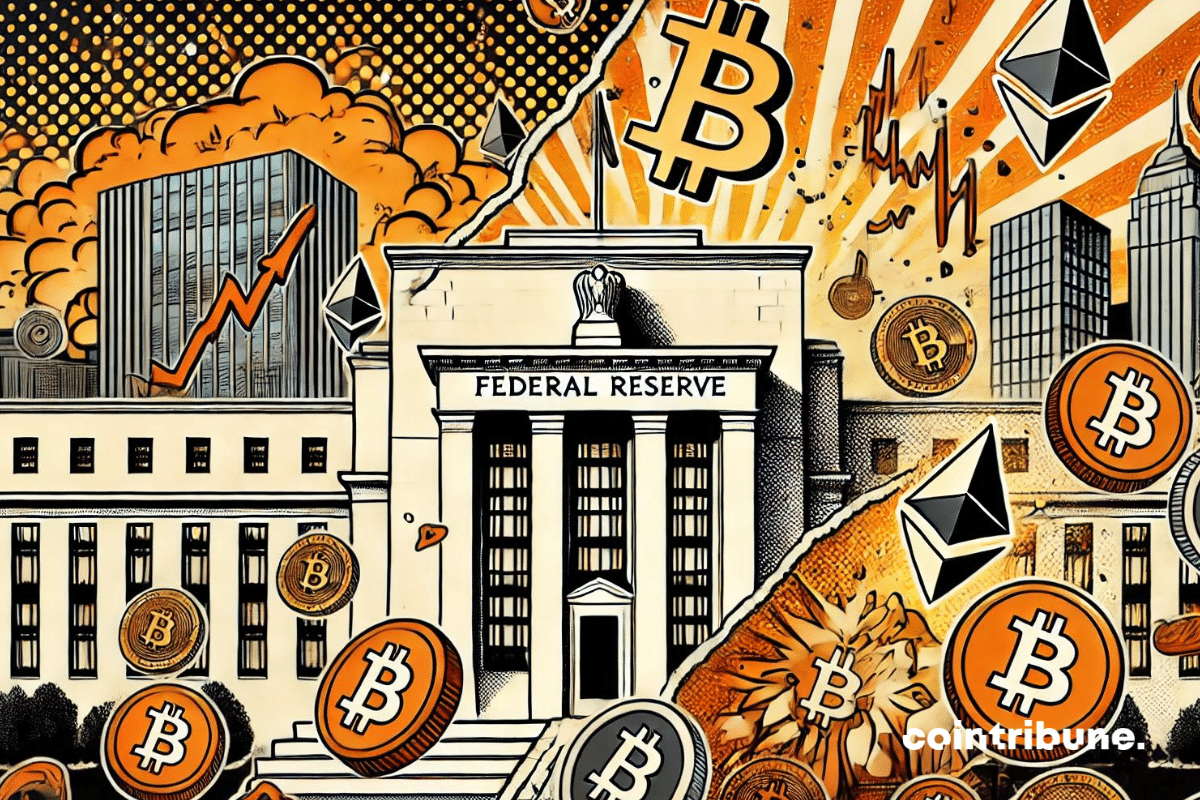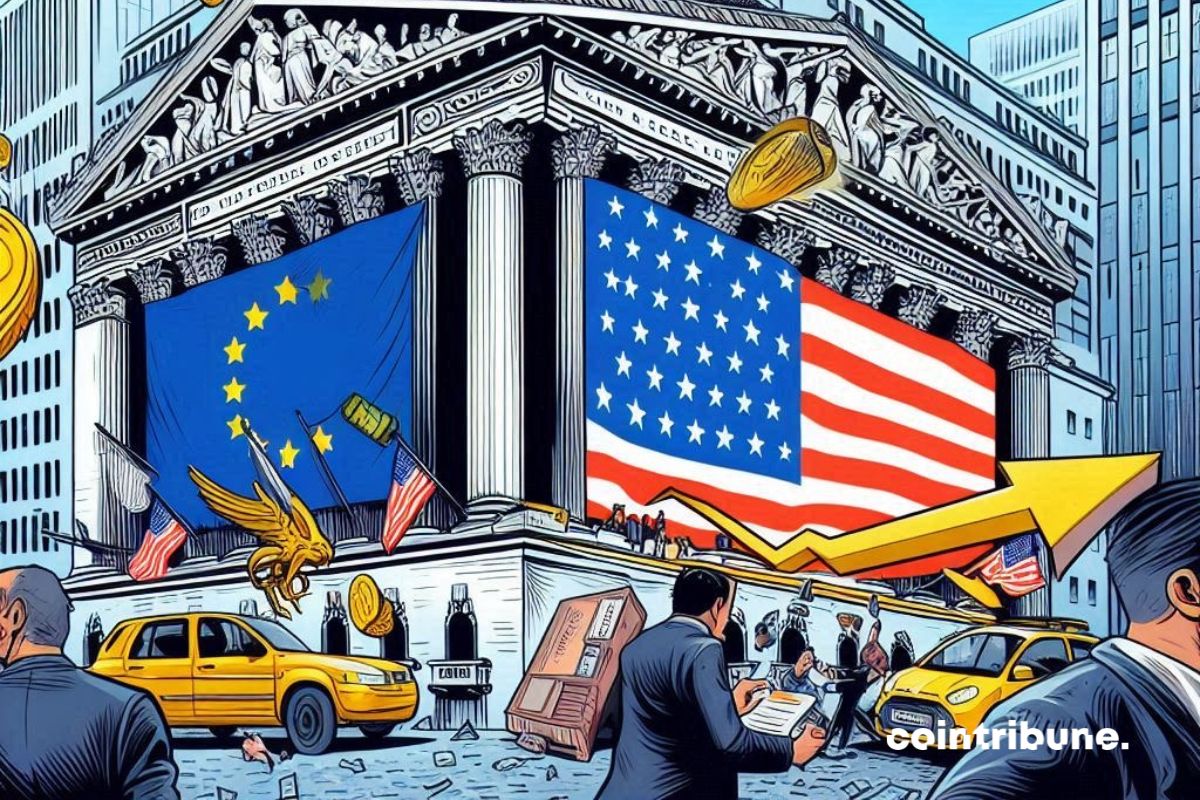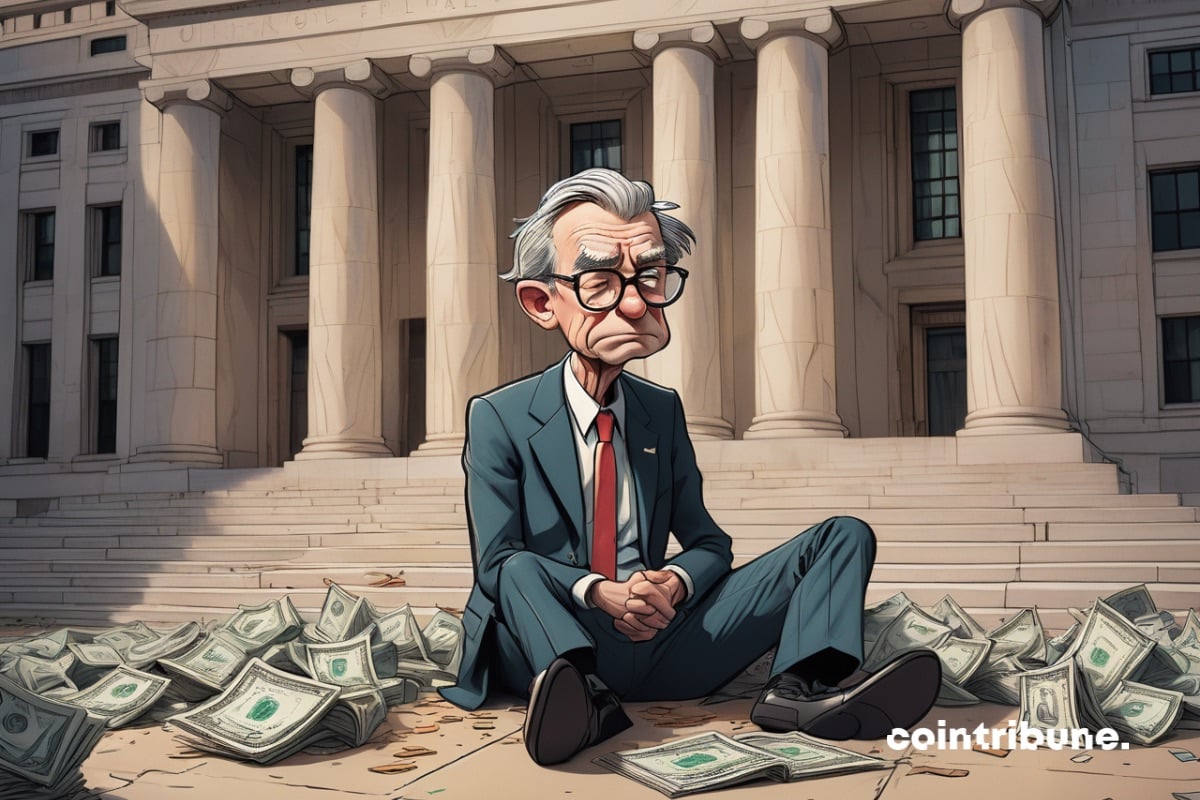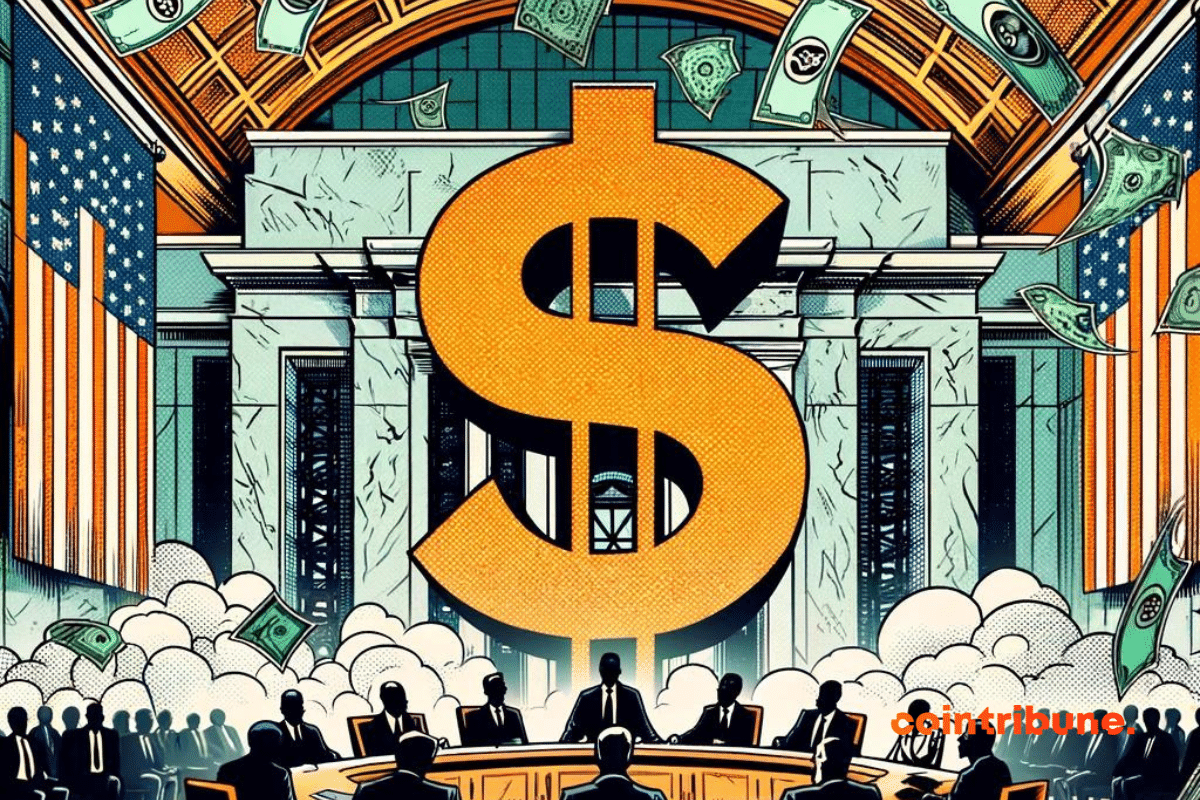A renowned financial analyst, Dr. Jim Willie, recently sounded the alarm about a massive debt crisis that could hit the U.S. economy in 2025. According to him, the United States is heading toward a critical point with $7 trillion in debt maturing, which could trigger a major economic crisis.
US Federal Reserve (FED)
Under the Christmas tree of the global economy, Bitcoin sparkles. But behind the digital gold, the shadow of a storm is gently forming.
Amid whispers of inflation and hopes for growth, the Fed is reshaping its horizons. Powell, with caution in hand, challenges a nascent economic storm.
Recent employment data in the United States suggests a likely reduction in interest rates in December, according to Grayscale. This outlook could influence financial markets, particularly bitcoin, which may benefit from this more accommodative monetary policy. Here’s what the figures reveal.
After the governor of the Bank of France, it is now the turn of the Fed's governor to temper his stance regarding Bitcoin.
Investors are ramping up their bets on a decrease in the U.S. Federal Reserve's benchmark interest rates in December, according to the CME FedWatch tool. The probability of a 25 basis point reduction has surged to 74.5%, compared to 66% last week.
With XRP soaring, Ethereum galloping, and the Fed squawking, the week promises to be as unpredictable as a night market. Watch out for the jolts!
In a context of booming financial markets, where every macroeconomic event can redefine the balance, the upcoming week is set to be crucial for cryptocurrencies. Investors' attention is focused on key indicators such as the PCE price index, the minutes of the U.S. Federal Reserve (FOMC), and the revision of U.S. GDP. Meanwhile, the imminent expiration of over 10 billion dollars in Bitcoin and Ethereum options is expected to add to the prevailing volatility. These dynamics, which intertwine economic uncertainty and crypto issues, could significantly shape the financial landscape.
The great tide of "whales" is suspended! The giants of Bitcoin are waiting, monitoring the market like a cat watching a mouse.
The crypto market is holding its breath as the Federal Open Market Committee (FOMC) meeting of the American Federal Reserve approaches. Investors are closely watching for signals of a possible cut in interest rates, an event that could catalyze a new momentum for Bitcoin and the entire sector.
As governments seek to maintain control over their finances and close ever-growing budget deficits, a new enemy seems to be rising in their path: Bitcoin. The crypto, with its limited supply and decentralized nature, disrupts traditional economic models and forces some actors to consider radical measures. It is in this context that the Federal Reserve Bank of Minneapolis has newly published an explosive report suggesting that to maintain ongoing deficits, governments should either tax or outright ban Bitcoin. Such a shocking statement comes as the United States struggles to contain its national debt, which is reaching record levels, and as regulation of cryptocurrencies becomes a sensitive topic.
Heated debate at the FED! Inflation and interest rate cuts divide financial experts who can no longer understand each other.
Bitcoin is experiencing a significant decline, reigniting investor concerns. After approaching $66,000 last week, its price dropped to $62,501 this Tuesday, representing a decrease of 5.3%.
The FED has just made a major change in its monetary policy. After 17 months of status quo, the central bank has decided to cut its key interest rates by 0.50 percentage points at its September meeting. Are you ready for the return of the printing press?
Financial markets are holding their breath as all eyes turn to the upcoming key economic indicators from the United States and statements from the Federal Reserve. This is not just a fleeting fluctuation for Bitcoin, but a decisive day that could well influence its price in the short term. After a 2% rebound that brings it back above $64,000, BTC finds itself at a crossroads. Uncertainty is palpable as investors eagerly await the release of the second quarter GDP and speeches from Fed officials, which could provide important clues about the health of the American economy and the future direction of the markets.
On track! Bitcoin surpasses $62,000 after the Fed's boost. HODLers hold on, traders rejoice!
The decision by the American Federal Reserve to lower its interest rates has caused a real shockwave in the crypto market. Bitcoin surged nearly 6% to hover around $63,000, pulling the entire ecosystem of digital currencies along in its wake.
The Fed has just marked a decisive turning point in its monetary policy, triggering a real shockwave in the European markets. After months of tightening, the American institution has decided to ease the pressure, and the result was immediate: European stock markets soared. A palpable relief spread across financial markets,…
The American Federal Reserve (Fed) has just announced a decrease in its interest rates this Wednesday, September 18, marking a major turning point in its monetary policy. This decision, long anticipated by the markets, could have significant repercussions on the crypto ecosystem, particularly Bitcoin.
Bitcoin under pressure: the Fed lowers rates and the crypto market could emerge either shaken or pleased!
The week looks set to be eventful for the crypto market, with three major elements to watch: U.S. inflation data, Federal Reserve decisions, and the evolution of investor sentiment. These factors could significantly influence the prices of Bitcoin and other digital assets in the coming days.
As the American Federal Reserve prepares to lower its rates, Bitcoin is struggling to take advantage of it. Arthur Hayes, former CEO of BitMEX, provides an insightful analysis of this apparent paradox that intrigues investors.
Financial markets hold their breath when Jerome Powell, Chairman of the Federal Reserve of the United States, speaks. At the recent Jackson Hole conference, Powell surprised investors with unexpected comments. He suggested a possible reduction in interest rates, as well as a shift towards a more lenient monetary policy. In a global economic context where every word from the Fed Chairman can trigger a cascade of reactions in the markets, these announcements hold crucial importance for crypto investors.
Bitcoin rises 543 million $ after comments from Jerome Powell, the chairman of the FED, on the possible rate cut in September.
The Bitcoin market is buzzing ahead of a crucial decision by the U.S. Federal Reserve. Open interest in the leading cryptocurrency has surged by a spectacular $2 billion, reflecting investor anticipation of a likely interest rate cut in September.
The Federal Reserve (Fed) has decided to keep its key rates at a high level, marking a significant step in its current monetary policy. This decision immediately influenced the crypto market, with a noticeable drop in the price of certain assets.
Not content with drastically limiting how Iraq can spend its dollar reserves, the Fed now forbids it from using the yuan. When will it be bitcoin?
Stock markets are soaring ahead of a crucial Fed meeting, reflecting a renewed confidence in the financial markets.
Discover how financial turbulence is shaking the FED, engulfed by record losses of $114.3 billion.
The decision of the Federal Reserve regarding the interest rate cut was particularly anticipated. The Fed defies the predictions of some analysts by keeping them at their current level. A prudent choice that could change as the inflation of the US economy slows to 2%.
